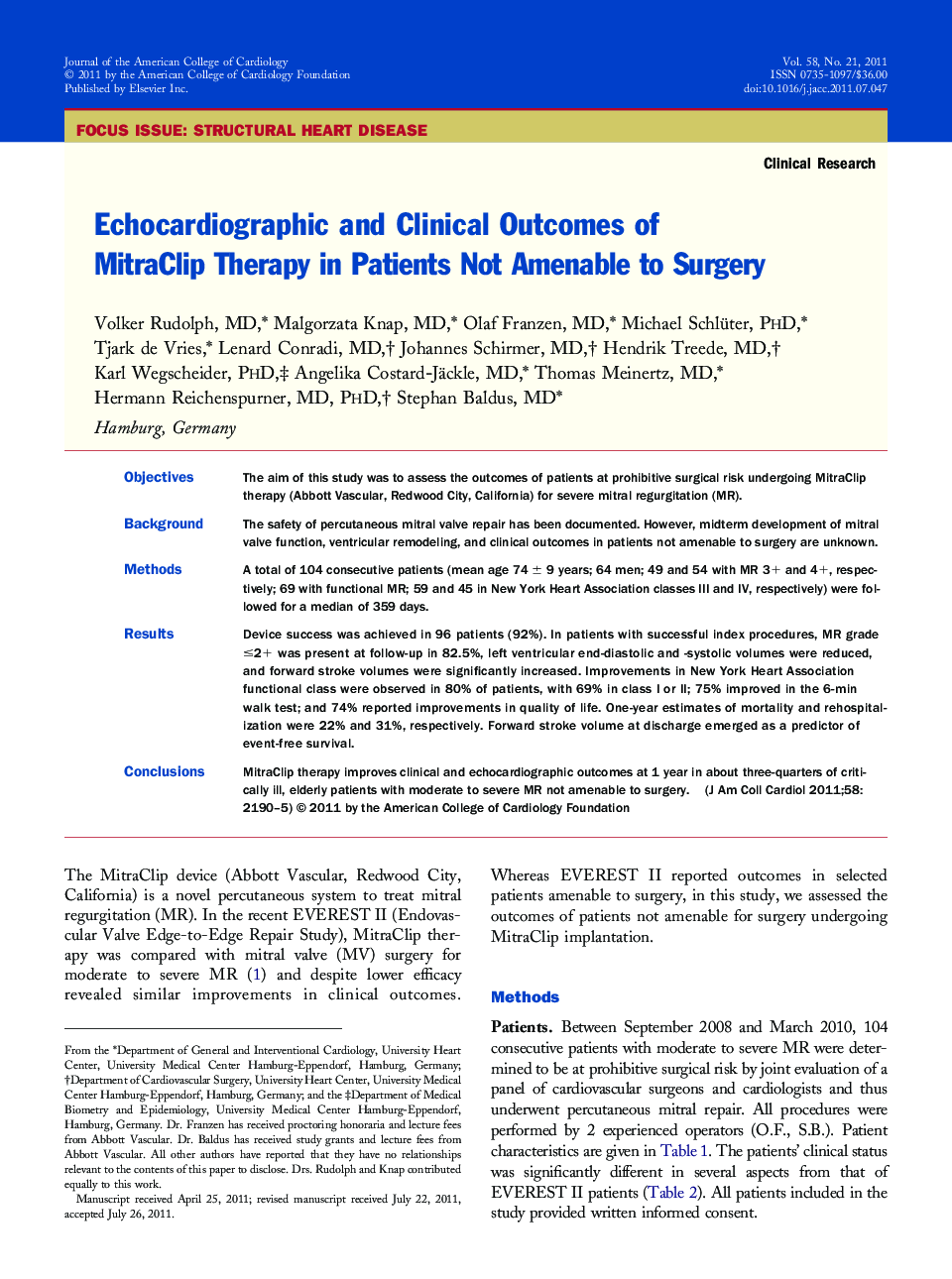| Article ID | Journal | Published Year | Pages | File Type |
|---|---|---|---|---|
| 2947463 | Journal of the American College of Cardiology | 2011 | 6 Pages |
ObjectivesThe aim of this study was to assess the outcomes of patients at prohibitive surgical risk undergoing MitraClip therapy (Abbott Vascular, Redwood City, California) for severe mitral regurgitation (MR).BackgroundThe safety of percutaneous mitral valve repair has been documented. However, midterm development of mitral valve function, ventricular remodeling, and clinical outcomes in patients not amenable to surgery are unknown.MethodsA total of 104 consecutive patients (mean age 74 ± 9 years; 64 men; 49 and 54 with MR 3+ and 4+, respectively; 69 with functional MR; 59 and 45 in New York Heart Association classes III and IV, respectively) were followed for a median of 359 days.ResultsDevice success was achieved in 96 patients (92%). In patients with successful index procedures, MR grade ≤2+ was present at follow-up in 82.5%, left ventricular end-diastolic and -systolic volumes were reduced, and forward stroke volumes were significantly increased. Improvements in New York Heart Association functional class were observed in 80% of patients, with 69% in class I or II; 75% improved in the 6-min walk test; and 74% reported improvements in quality of life. One-year estimates of mortality and rehospitalization were 22% and 31%, respectively. Forward stroke volume at discharge emerged as a predictor of event-free survival.ConclusionsMitraClip therapy improves clinical and echocardiographic outcomes at 1 year in about three-quarters of critically ill, elderly patients with moderate to severe MR not amenable to surgery.
